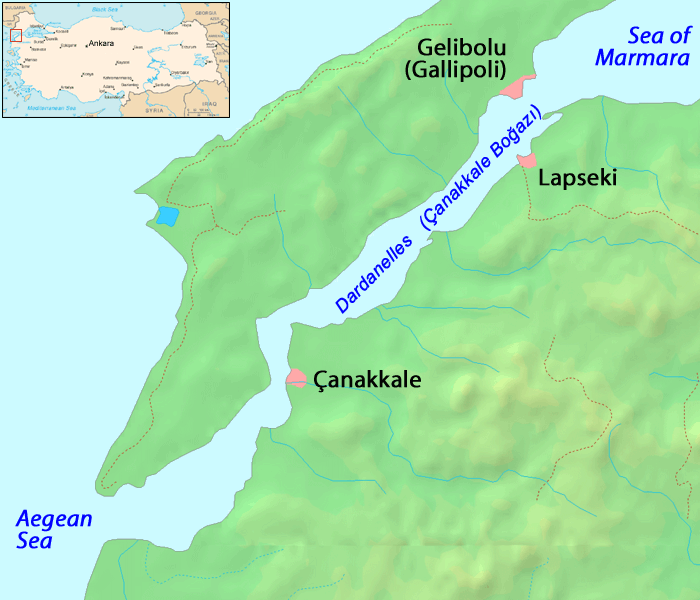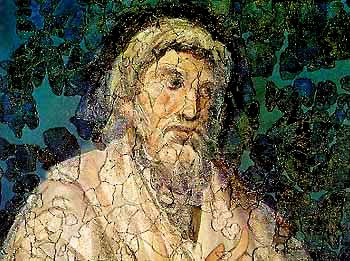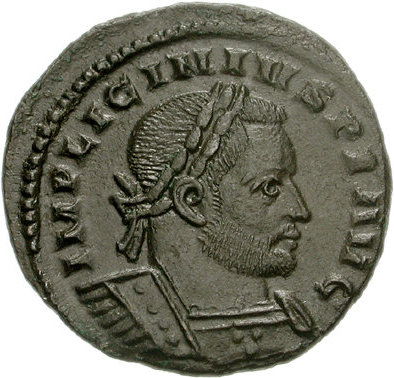|
Crispus
Flavius Julius Crispus (; 300 – 326) was the eldest son of the Roman emperor Constantine I, as well as his junior colleague ( ''caesar'') from March 317 until his execution by his father in 326. The grandson of the ''augustus'' Constantius I, Crispus was the elder half-brother of the future ''augustus'' Constantine II and became co-''caesar'' with him and with his cousin Licinius II at Serdica, part of the settlement ending the Cibalensean War between Constantine and his father's rival Licinius I. Crispus ruled from Augusta Treverorum ( Trier) in Roman Gaul between 318 and 323 and defeated the navy of Licinius I at the Battle of the Hellespont in 324, which with the land Battle of Chrysopolis won by Constantine forced the resignation of Licinius and his son, leaving Constantine the sole ''augustus'' and the Constantinian dynasty in control of the entire empire. It is unclear what was legal status of the relationship Crispus's mother Minervina had with Constantine; C ... [...More Info...] [...Related Items...] OR: [Wikipedia] [Google] [Baidu] |
Constantine I
Constantine I ( , ; la, Flavius Valerius Constantinus, ; ; 27 February 22 May 337), also known as Constantine the Great, was Roman emperor from AD 306 to 337, the first one to convert to Christianity. Born in Naissus, Dacia Mediterranea (now Niš, Serbia), he was the son of Flavius Constantius, a Roman army officer of Illyrian origin who had been one of the four rulers of the Tetrarchy. His mother, Helena, was a Greek Christian of low birth. Later canonized as a saint, she is traditionally attributed with the conversion of her son. Constantine served with distinction under the Roman emperors Diocletian and Galerius. He began his career by campaigning in the eastern provinces (against the Persians) before being recalled in the west (in AD 305) to fight alongside his father in Britain. After his father's death in 306, Constantine became emperor. He was acclaimed by his army at Eboracum ( York, England), and eventually emerged victorious in the civil wars against ... [...More Info...] [...Related Items...] OR: [Wikipedia] [Google] [Baidu] |
Constantine The Great
Constantine I ( , ; la, Flavius Valerius Constantinus, ; ; 27 February 22 May 337), also known as Constantine the Great, was Roman emperor from AD 306 to 337, the first one to convert to Christianity. Born in Naissus, Dacia Mediterranea (now Niš, Serbia), he was the son of Flavius Constantius, a Roman army officer of Illyrian origin who had been one of the four rulers of the Tetrarchy. His mother, Helena, was a Greek Christian of low birth. Later canonized as a saint, she is traditionally attributed with the conversion of her son. Constantine served with distinction under the Roman emperors Diocletian and Galerius. He began his career by campaigning in the eastern provinces (against the Persians) before being recalled in the west (in AD 305) to fight alongside his father in Britain. After his father's death in 306, Constantine became emperor. He was acclaimed by his army at Eboracum ( York, England), and eventually emerged victorious in the civil wars against ... [...More Info...] [...Related Items...] OR: [Wikipedia] [Google] [Baidu] |
Fausta
Flavia Maxima Fausta ''Augusta'' (289–326 AD) was a Roman empress. She was the daughter of Maximian and second wife of Constantine the Great, who had her executed and excluded from all official accounts for unknown reasons. Historians Zosimus and Zonaras reported that she was executed for adultery with her stepson, Crispus. Family Fausta was the daughter of Emperor Maximian. To seal the alliance between them for control of the Tetrarchy, in 307 Maximianus married her to Constantine I, who set aside his wife, Minervina, in her favour. As the sister of Emperor Maxentius, Fausta had a part in their father's downfall. In 310 Maximian died as a consequence of an assassination plot against Constantine. Maximian decided to involve his daughter Fausta, but she revealed the plot to her husband, and the assassination was disrupted. Maximian died, by suicide or by assassination, in July of that same year. Fausta was held in high esteem by Constantine, and proof of his favour was tha ... [...More Info...] [...Related Items...] OR: [Wikipedia] [Google] [Baidu] |
Licinius II
Licinius II, also called Licinius Junior or Licinius Caesar (Latin: ''Valerius Licinianus Licinius''; – ), was the son of the Roman emperor Licinius I. He held the imperial rank of '' caesar'' between March 317 and September 324, while his father was ''augustus'', and he was twice Roman consul. After losing a civil war, his father lost power and both he and Licinius the Younger were eventually put to death. Family and background Licinius I married Flavia Julia Constantia, daughter of the ''augustus'' Constantius Chlorus and half-sister of the ''augustus'' Constantine I. They wed at Mediolanum (Milan) in February 313. Three years later, Constantine attacked Licinius in the Cibalensean War. Constantine defeated Licinius at the Battle of Cibalae at Cibalae (Vinkovci) in Pannonia Secunda on the 8 October 316 and again at the Battle of Mardia near Hadrianopolis in Haemimontus ( Edirne). Life Licinius II, son of Licinius, grandson of Constantius I, and half-nephew of Co ... [...More Info...] [...Related Items...] OR: [Wikipedia] [Google] [Baidu] |
Minervina
Minervina was the first wife of Constantine I, Constantine the Great. She was of Syrian origin. Constantine either took her as a concubine or married her in 303, and the couple had one son, Crispus. Life Constantine served as a hostage in the court of Eastern Roman Emperor Diocletian in Nicomedia, thus securing the loyalty of his father Constantius Chlorus, Caesar of the Western Roman Empire. When Constantine wanted to strengthen his bonds with the other Tetrarchy, Tetrarchs, in 307 AD he set aside Minervina and married Fausta, daughter of ''Augustus (honorific), Augustus'' Maximian. The marriage of Constantine to Fausta has caused modern historians to question the status of his relation to Minervina and Crispus. In the early 4th century, it was established at the Council of Nicaea (first ecumenical council, 325AD, after the legalization of Christianity by Constantine in 313AD- Edict of Milan, following his conversion) that a widow could marry again without being excluded from ... [...More Info...] [...Related Items...] OR: [Wikipedia] [Google] [Baidu] |
Battle Of The Hellespont
The Battle of the Hellespont, consisting of two separate naval clashes, was fought in 324 between a Constantinian fleet, led by the eldest son of Constantine I, Crispus; and a larger fleet under Licinius' admiral, Abantus (or Amandus). Despite being outnumbered, Crispus won a very complete victory. Background Following his defeat at Adrianople, in Thrace, Licinius and his main army fell back to the city of Byzantium. Licinius left a strong garrison in Byzantium but ferried the greater part of his troops across the Bosphorus to the Asian shore. To maintain his force in Byzantium, and to secure his line of communication between Asia Minor and the city, retaining control of the narrow waters separating Thrace from Bithynia and Mysia now became imperative for Licinius. Constantine, if he wished to cross to Asia in order to destroy Licinius' means of further resistance, had to gain control of the sea crossings. Licinius' main army was on the Bosphoros to cover this crossing poi ... [...More Info...] [...Related Items...] OR: [Wikipedia] [Google] [Baidu] |
Lactantius
Lucius Caecilius Firmianus Lactantius (c. 250 – c. 325) was an early Christian author who became an advisor to Roman emperor, Constantine I, guiding his Christian religious policy in its initial stages of emergence, and a tutor to his son Crispus. His most important work is the '' Institutiones Divinae'' ("The Divine Institutes"), an apologetic treatise intended to establish the reasonableness and truth of Christianity to pagan critics. He is best known for his apologetic works, widely read during the Renaissance by humanists, who called Lactantius the "Christian Cicero". Also often attributed to Lactantius is the poem '' The Phoenix'', which is based on the myth of the phoenix from Egypt and Arabia. Though the poem is not clearly Christian in its motifs, modern scholars have found some literary evidence in the text to suggest the author had a Christian interpretation of the eastern myth as a symbol of resurrection. Biography Lactantius was of Punic or Berber origin, born ... [...More Info...] [...Related Items...] OR: [Wikipedia] [Google] [Baidu] |
Constantine II (emperor)
Constantine II ( la, Flavius Claudius Constantinus; February 316 – 340) was Roman emperor from 337 to 340. Son of Constantine the Great and co-emperor alongside his brothers, his attempt to exert his perceived rights of primogeniture led to his death in a failed invasion of Italy in 340. Career The eldest son of Constantine the Great and Fausta, Constantine II was born in Arles in February 316 and raised as a Christian. Caesar On 1 March 317, he was made Caesar. In 323, at the age of seven, he took part in his father's campaign against the Sarmatians. At age ten, he became commander of Gaul, following the death of his half-brother Crispus. An inscription dating to 330 records the title of ''Alamannicus'', so it is probable that his generals won a victory over the Alamanni. His military career continued when Constantine I made him field commander during the 332 campaign against the Goths. Augustus Following the death of his father in 337, Constantine II initiall ... [...More Info...] [...Related Items...] OR: [Wikipedia] [Google] [Baidu] |
Licinius I
Valerius Licinianus Licinius (c. 265 – 325) was Roman emperor from 308 to 324. For most of his reign he was the colleague and rival of Constantine I, with whom he co-authored the Edict of Milan, AD 313, that granted official toleration to Christians in the Roman Empire. He was finally defeated at the Battle of Chrysopolis (AD 324), and was later executed on the orders of Constantine I. Early reign Born to a Dacian peasant family in Moesia Superior, Licinius accompanied his close childhood friend, the future emperor Galerius, on the Persian expedition in 298. He was trusted enough by Galerius that in 307 he was sent as an envoy to Maxentius in Italy to attempt to reach some agreement about the latter's illegitimate political position. Galerius then trusted the eastern provinces to Licinius when he went to deal with Maxentius personally after the death of Severus II. Upon his return to the east Galerius elevated Licinius to the rank of ''Augustus'' in the West on 11 Novemb ... [...More Info...] [...Related Items...] OR: [Wikipedia] [Google] [Baidu] |
Licinius
Valerius Licinianus Licinius (c. 265 – 325) was Roman emperor from 308 to 324. For most of his reign he was the colleague and rival of Constantine I, with whom he co-authored the Edict of Milan, AD 313, that granted official toleration to Christians in the Roman Empire. He was finally defeated at the Battle of Chrysopolis (AD 324), and was later executed on the orders of Constantine I. Early reign Born to a Dacian peasant family in Moesia Superior, Licinius accompanied his close childhood friend, the future emperor Galerius, on the Persian expedition in 298. He was trusted enough by Galerius that in 307 he was sent as an envoy to Maxentius in Italy to attempt to reach some agreement about the latter's illegitimate political position. Galerius then trusted the eastern provinces to Licinius when he went to deal with Maxentius personally after the death of Severus II. Upon his return to the east Galerius elevated Licinius to the rank of ''Augustus'' in the West on 11 N ... [...More Info...] [...Related Items...] OR: [Wikipedia] [Google] [Baidu] |
Caesar (title)
Caesar ( English Caesars; Latin ''Caesares''; in Greek: ''Kaîsar'') is a title of imperial character. It derives from the '' cognomen'' of Julius Caesar, a Roman dictator. The change from being a familial name to a title adopted by the Roman emperors can be traced to AD 68, following the fall of the Julio–Claudian dynasty. Origins The first known individual to bear the ''cognomen'' of "Caesar" was Sextus Julius Caesar, who is likewise believed to be the common ancestor of all subsequent Julii Caesares. Sextus' great-grandson was the dictator Gaius Julius Caesar. After he seized control of the Roman Republic following his war against the Senate, he adopted the title of '' dictator perpetuo'' ("dictator in perpetuity"), a title he only held for about a month before he was assassinated in 44 BC. Julius Caesar's death did not lead to the restoration of the Republic, and instead led to the rise of the Second Triumvirate, composed by three dictators includ ... [...More Info...] [...Related Items...] OR: [Wikipedia] [Google] [Baidu] |
Pula
Pula (; also known as Pola, it, Pola , hu, Pòla, Venetian; ''Pola''; Istriot: ''Puola'', Slovene: ''Pulj'') is the largest city in Istria County, Croatia, and the seventh-largest city in the country, situated at the southern tip of the Istrian peninsula, with a population of 52,411 in 2021. It is known for its multitude of ancient Roman buildings, the most famous of which is the Pula Arena, one of the best preserved Roman amphitheaters. The city has a long tradition of wine making, fishing, shipbuilding, and tourism. It was the administrative centre of Istria from ancient Roman times until superseded by Pazin in 1991. History Pre-history Evidence of the presence of ''Homo erectus'' one million years ago has been found in the cave of Šandalja near Pula. Pottery from the Neolithic period (6000–2000 BC), indicating human settlement, has been found around Pula. In the Bronze Age (1800–1000 BC), a new type of settlement appeared in Istria, called 'gradine', or Hill- ... [...More Info...] [...Related Items...] OR: [Wikipedia] [Google] [Baidu] |








